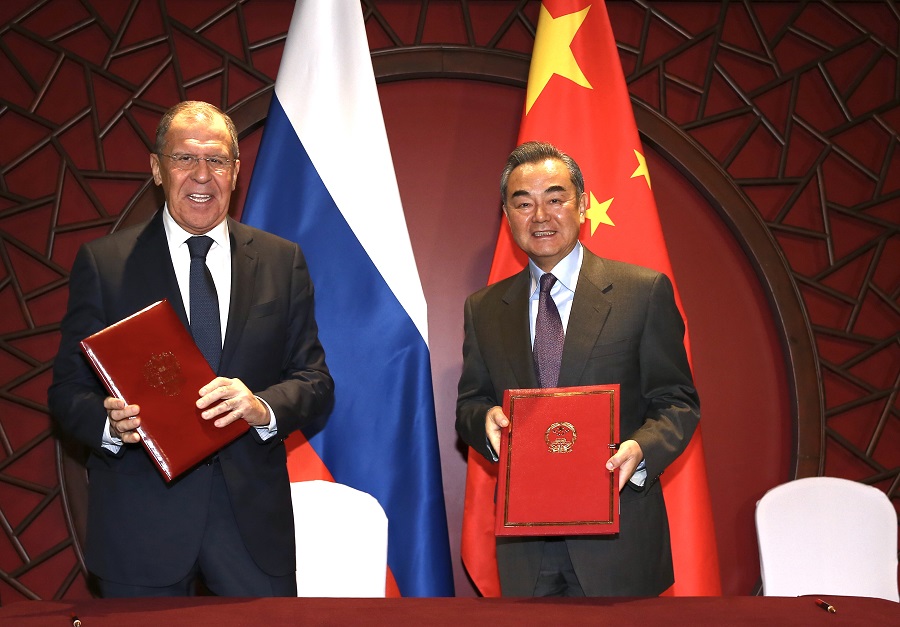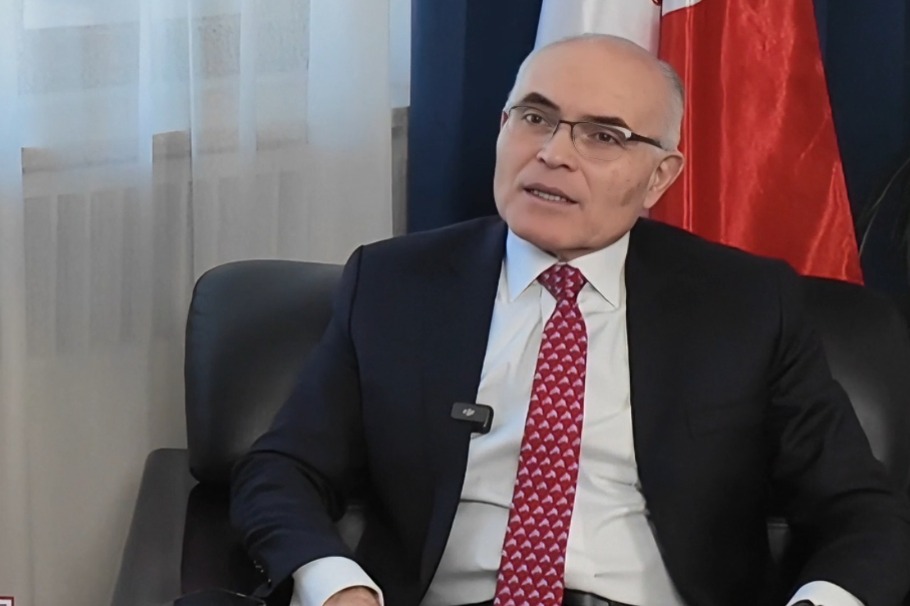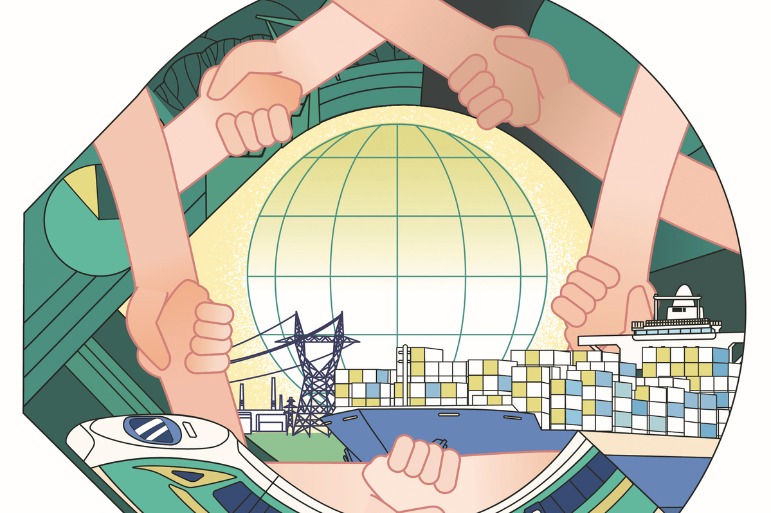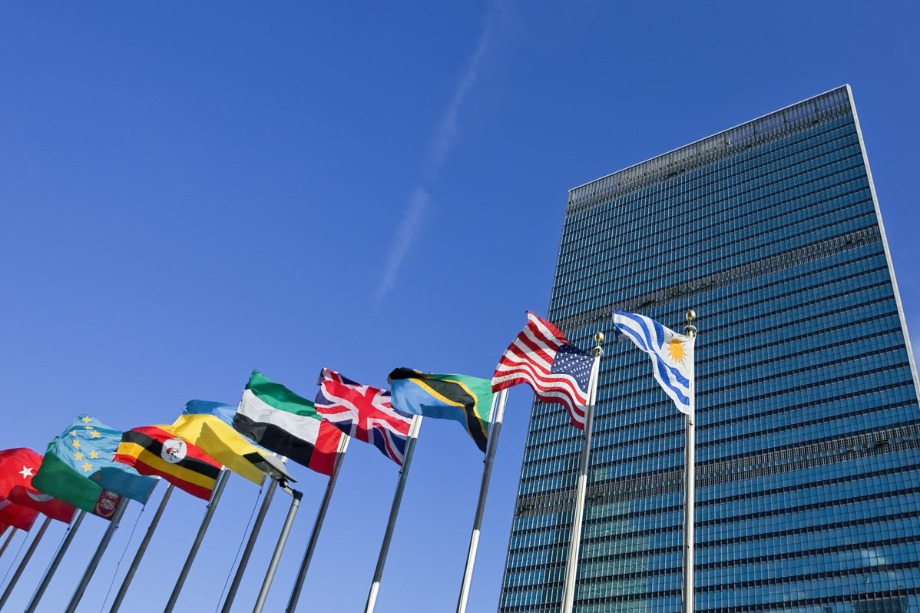China, Russia, India working for fairer order


Multi-polarization and globalization remain the broader trend across the world, although the international community seems to be returning to the era of great-power competition. As the main forces behind the building of a new world order by promoting multi-polarization, China, Russia and India should strengthen their cooperation mechanism, deepen collaboration and clarify their respective priorities at different stages of cooperation through regular meetings among their foreign ministers.
But none of the three countries have forged closer relations to challenge the United States' leading role in what used to be a unipolar world after the end of the Cold War, nor have they attempted to reinvent the wheel.
Beijing, Moscow and New Delhi have expressed their willingness to collaborate. And as late Chinese leader Deng Xiaoping stated, the "Century of Asia" will not be realized without the development of and cooperation between China and India.
Good collaboration at United Nations
China, Russia and India collaborated well at the United Nations and at other forums and occasions in the 1990s to counter the activities and conspiracies waged against them by the US-led West. In the aftermath of the 2008 global financial crisis, cooperation among China, Russia and India developed rapidly with the establishment of multiple cooperation mechanisms including BRICS, the Asian Infrastructure Investment Bank and the G20.
The strength of the West has largely weakened and the reshaping of the world order accelerated. As the three of the largest emerging economies, China, India and Russia recognized and addressed the need to improve friendly relations not only to advance each other's interests, but also to safeguard regional security and interests.
Of course, the US has been the common factor why China, Russia and India have deepened cooperation. Actually, the opposition to US policies, to a large extent, has helped push the three countries closer. In the long run, Washington would not allow New Delhi to challenge US interests, though of late it has been increasingly currying favor with the latter.
US' global outlook different from the rest
Generally, the contradiction between multi-polarization and a unipolar world, manifested as the contradiction between the emerging powers and the US, is the world's primary contradiction. Relations with the US are prioritized as the core issue in diplomatic strategies of the three countries, which hope to foster stable and healthy relations with the US. Still, none of the three countries can pin their hopes on the goodwill of the US.
China, Russia and India are able to unite developing countries and negotiate with the US-led West by developing an effective and strategic relationship and significantly increasing their collateral power on the global stage. Yet the three countries have no intention to form a coalition. They only want to establish a new center of strength in international relations. Promoting multi-polarization, albeit a long process, is the three countries' common goal. With that goal in mind, they should continuously enrich the strategic content of trilateral cooperation and resolve practical issues.
Trilateral cooperation entered a new stage after India became an official member of the Shanghai Cooperation Organization and the meeting between Chinese and Indian leaders in Wuhan, Hubei province, in 2018. Given that the US is going its own way by championing the "America First" policy and opposing globalization, China, Russia and India must confront the challenge ahead and shoulder the responsibility of protecting developing countries' interests, safeguarding regional security and promoting a fair world order.
Shouldering common responsibilities together
First, the three countries should fulfill their common responsibility of promoting strategic stability in the "Indo-Pacific" region as they are not only the major countries in the region, but also key beneficiaries and guardians of the region's security and stability.
Based on its alliance with several countries in the Asia-Pacific region, the US attempts to promote the "Indo-Pacific" security framework with itself at the center. But regional security cannot depend on the US alliance system which prioritizes American interests.
Moreover, as independent powers China, Russia and India have never aligned with any group when it comes to strategic security. The non-aligned yet close strategic interactions among the three countries could shift the global balance of power and ensure strategic stability in the region apart from beefing up their respective national security.
Fighting extremism, terrorism and separatism
Second, the three countries face the common challenge of containing the spread of the "three evil forces" of terrorism, extremism and separatism. Central and South Asia are the two regions where the evil forces are very active.
Besides, with the Afghanistan issue hanging in balance and the US prepared to withdraw troops from Afghanistan and leave the country without resolving the terrorism issue, China, Russia and India should work closely with each other to promote stability in Afghanistan, prevent the evil forces from expanding their activities and provide a conducive security environment to help connect their regional development strategies.
Above all, the three countries need to comply with the reality of rising security demand and adjust to the new situation, marked by the war on terrorism, which the US is in no position to lead. The three countries should therefore provide public security goods by deepening their cooperation, for which they have to hold regular meetings, including at forums such as the SCO, and building a security environment conducive to the linking of development strategies.
Immense room for collaboration
Third, the three countries also have to strengthen their strategic cooperation. The demands from Eurasia and the domestic markets of China, Russia and India have provided much room for the three countries to link their strategies. China's Belt and Road Initiative, Russia's Eurasian Economic Union and India's Project Mausam overlap with each other. For instance, the three countries could promote collaboration to improve interconnectivity and regional development.
Given that the three countries are important driving forces of multilateralism and democratization of international relations, as well as key members of BRICS and the SCO, they can easily propel the development of the two new types of international organizations, by deepening strategic cooperation. And the strategic consensus reached by the three sides will be vital for voicing developing countries' collective concerns and appeals. In fact, the three countries have put forward a series of propositions that would benefit global economic recovery, financial stability and further develop globalization.
While pushing to link their respective development plans, the three sides should diversify and strengthen the meeting mechanism for their foreign ministers and enhance strategic collaboration and cooperation under multilateral frameworks such as BRICS, the SCO and the G20, so as to propel the reform of global economic governance system.
Yet cooperation among China, Russia and India does not mean the three countries aim to build a group against the US. The connotation and outward manifestation of trilateral cooperation have developed and expanded constantly. In the future, the three countries need to overcome resistance, give full play to the function of a new multilateral mechanism and strengthen strategic links and common development, in order to help shape a global order that's fair and reasonable.
The author is a research fellow at the China Institutes of Contemporary International Relations. The views don't necessarily represent those of China Daily.


































